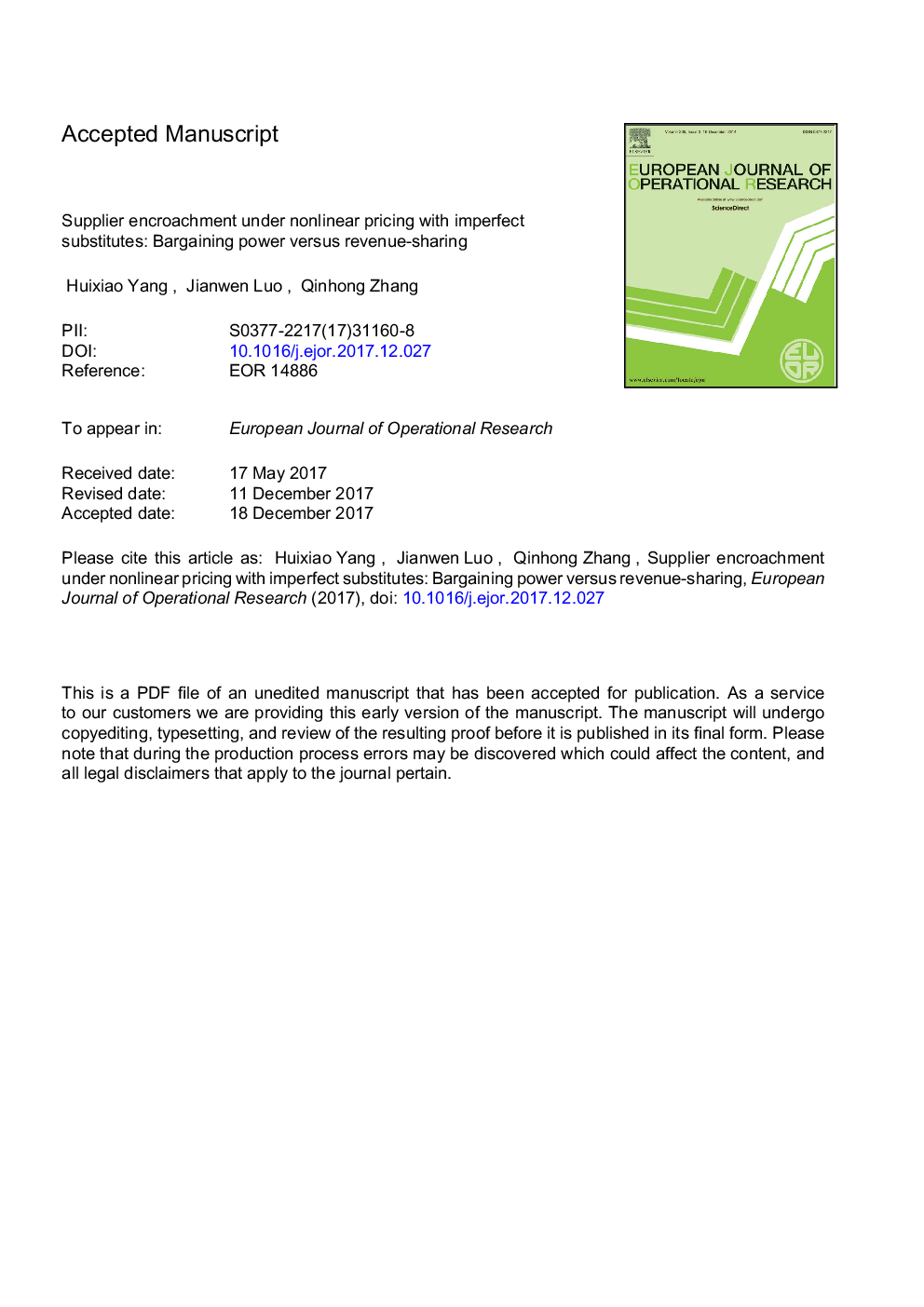ترجمه فارسی عنوان مقاله
تحریم سازمانی تحت قیمت گذاری غیرخطی با جایگزین های نامناسب: قدرت تجدید نظر در مقابل تقسیم درآمد
عنوان انگلیسی
Supplier encroachment under nonlinear pricing with imperfect substitutes: Bargaining power versus revenue-sharing
| کد مقاله | سال انتشار | تعداد صفحات مقاله انگلیسی |
|---|---|---|
| 86080 | 2018 | 35 صفحه PDF |
منبع

Publisher : Elsevier - Science Direct (الزویر - ساینس دایرکت)
Journal : European Journal of Operational Research, Volume 267, Issue 3, 16 June 2018, Pages 1089-1101
ترجمه کلمات کلیدی
تجارت الکترونیک، تحریم سازنده، قدرت چانه زنی، قراردادهای قیمت غیر خطی، قراردادهای به اشتراک درآمد،
کلمات کلیدی انگلیسی
E-commerce; Supplier encroachment; Bargaining power; Nonlinear price contracts; Revenue-sharing contracts;

